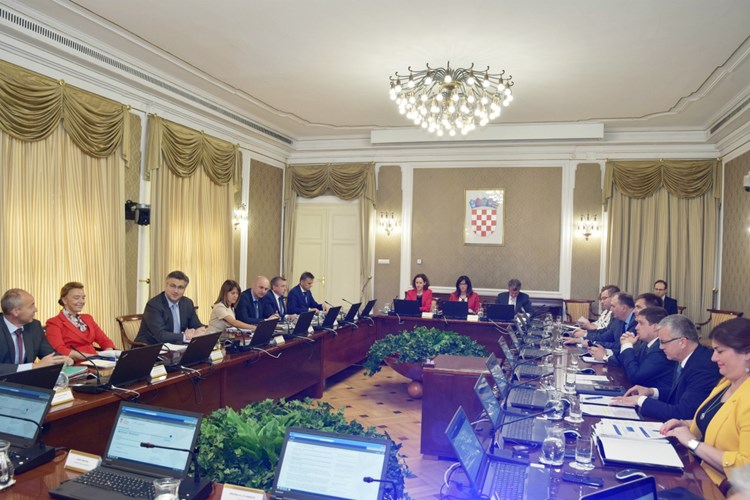- Published: 26.06.2018.
The law package on poorly developed areas also has a demographic character
The government on Thursday sent four bills to parliament, on mountainous regions, islands, assisted areas, and housing in assisted areas, with the aim of stimulating the development of financially "challenged" areas in order to ensure balanced development throughout the country as well as stimulating population, economic and social trends.
"I think that with this package, and additionally with the law on the development of Vukovar which we are working on with the European Commission, we will complete the legislative framework pertaining to Croatia's regional development policy," Regional Development and EU Funds Minister Gabrijela Zalac said.
She said her ministry would set aside HRK 94 million for the development of islands, confident that the new law would help increase the island population.
The bill on assisted areas envisages the adoption of a programme for their sustainable social and economic development. Zalac said HRK 85 million was set aside for next year for the implementation of the new law, up from HRK 12.7 million in 2017 and HRK 50 million this year.
"Everything we are doing is good preparation for the absorption of European funds and the next programme period, which I expect to be much better than it is now so that those areas can do much better, notably the people who should stay there," said Zalac.
The bill on housing in assisted areas raises the number of local government units from 185 to 330 offering housing under preferential conditions, including the donation of construction material, state aid, the lease or purchase of state-owned homes, housing for people in shortage occupations, victims of domestic violence or natural disasters, said Nikola Mazar, state secretary at the Central State Office for Reconstruction and Housing Care.
The aim of the measures is to encourage returning to, staying in and populating assisted areas and about 1,000 families are expected to be provided for in the first year of the law's application, he added.
Zalac said the bill on mountainous areas was aimed at making them more competitive and developed. The bill envisages the establishment of a fund for the development of such areas through which HRK 20 million from the state budget will be invested in them in 2019, as against HRK 1 million this year, she added.
Finance Minister Zdravko Maric said significant headway was made this year to strengthen fiscal decentralisation, adding that the revenues of local government units increased by over HRK 1 billion in the first half of this year after the government fully waived income tax revenues.
Sea, Transport and Infrastructure Minister Oleg Butkovic said these bills would help "areas which are financially less capable than others."
Public Administration Minister Lovro Kuscevic said the bills would contribute to better regional development and that it was necessary to ensure equal development as much as possible.
Demography Minister Nada Murganic said the bills had a "demographic character" as they were aimed at creating new employment and housing possibilities in order to stop emigration and encourage returns to the areas in question, notably of young people.
"The whole package is demographic in character, there's no doubt," Prime Minister Andrej Plenkovic, adding that it would be rounded off with the Vukovar Development Act.
The government on Thursday decided to allocate HR 24 million to finance culture, education, science, health and other projects for 2018 that are in the interest of the Croat people in Bosnia.
State secretary in the central office for Croats living outside Croatia, Zvonko Milas, said that this is the biggest amount so far allocated as support to Bosnian Croats.
Under its Constitution, the Croatian state is obliged to provide for Croats outside Croatia, Foreign and European Affairs Minister Marija Buric Pejcinovic said.
The government also secured HRK 125,000 for building a monument of the victims of Communism in Ottawa, Canada.
Text: Hina
